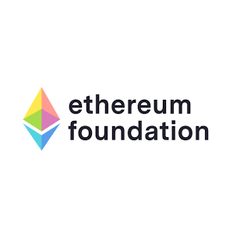
The Ethereum Foundation is a global non-profit organization dedicated to the advancement and sustainable success of Ethereum and related technologies. Committed to fostering innovation within the Ethereum ecosystem, the Foundation allocates resources to critical projects, serves as a key advocate for Ethereum worldwide, and ensures a valued presence within the community. Their comprehensive approach includes providing support across various aspects of the ecosystem, from groundbreaking technological developments to operational and human resources initiatives, and organizing pivotal events like Devcon and Devconnect.
With a strong emphasis on decentralization, transparency, and open-source principles, the Ethereum Foundation works diligently to manage legal and regulatory aspects, ensuring compliance and mitigating potential risks. Their globally distributed team collaborates with internal and external stakeholders to draft, review, and negotiate legal agreements, develop and maintain compliance policies, and stay abreast of the latest regulatory developments. They strive to uphold Ethereum's values while enabling a flexible and innovative work environment for their team.
The Ethereum Foundation: The Ethereum Foundation (EF) is a global non-profit organization dedicated to supporting Ethereum and related technologies. Our mission is to do what is best for Ethereum’s long-term success. Our role is to allocate resources to critical projects, to be a valued voice within the Ethereum ecosystem, and to advocate for Ethereum to the outside world.The Role: The Ethereum Foundation is seeking a highly motivated and organized leader to coordinate the planning and contribute to the design of the p2p layer, a critical component of the protocol’s stack. The role requires extensive coordination of external teams and will interface closely with other development and research leaders at the foundation.The Objective: is to increase the velocity of development on the Ethereum protocol’s p2p networking layer and to cultivate a consistent multi-year roadmap. Your technical experience will be crucial to stimulating conversation and decisions, but reaching consensus will require superb communication and coordination skills.A few key central questions will guide much of the work:How can Ethereum clients reduce their bandwidth consumption? Make their traffic more private? -There many active threads of research and development here, including adoption of libp2p’s IDONTWANT message, gossip-based data availability sampling, aka peerDAS, and fullDAS - inspired original from the 2017 paper “Fraud and Data Availability Proofs: Maximising Light Client Security and Scaling Blockchains with Dishonest Majorities”. -Privacy is important in many areas. Some ISPs in the future may want to restrict individuals from running an Ethereum client. In other cases, it’s possible to determine the IP address associated with certain validators. These scenarios are best to avoid.Under adverse conditions, how does Ethereum’s p2p stack hold up? How can we quantify, test and improve this? - Active proposals like EIP-7623 attempt to constrain the maximum block size over-the-wire. Beyond empirical evidence, it’s not clear how to reason about the “ideal” load on clients. -How can Ethereum be a steward of libp2p? -What decisions today will impact our future networking goals (data availability sampling, reducing bandwidth etc.)Successful answers to these questions will balance making the protocols work and making it beautiful. These decisions will impact the protocol for many years to come. Although it is important to keep the immediate goals and issues in view, there is much opportunity to harmonize the EL and CL p2p into a coherent and maintainable stack. Candidates should have enthusiasm about this challenge and be aligned on the basic tenants of the Ethereum p2p.However, given Ethereum’s nature, no one can unilaterally answer force solutions. The work happens in the open, in collaboration with the Ethereum community. Sheparding open source standards is unusual work and can be approached in many different ways. There is a lot of room to shape the specifics around your strong suits.Unique aspects of our work environment include:Working in public, with external stakeholders & collaborators: by default, the public thing is the main thing. You should expect the bulk of your contributions to happen in that setting. This means you’ll need to collaborate (and often compromise!) with people outside the team/org over which you have little to no “control”.Loose guidance & high agency: while there are individuals with deep contributions to the networking stack and will be available to weigh in and help in this journey, the responsibility to run with things is yours and no one else’s. You shouldn’t expect a career ladder with clear levels, but to be the architect of your own role over time.Wide design space & deliberate, high-leverage actions: the EF is in the privileged position where it only needs to considers what is best for Ethereum, with minimal other constraints. This creates a wide design space when thinking about potential solutions to problems. The flip side is that the EF is only a single actor in the Ethereum ecosystem and must be thoughtful about choosing what to allocate resources to, and the second order impacts of doing so.
What we offer
- Full-time position
- Fully remote
- Flexible work hours
- Competitive compensation
Listed in: Cryptocurrency Jobs, Remote Crypto Jobs, Web3 Crypto Jobs, Research Web3 Jobs, Full Time Crypto Jobs, NON Tech Crypto Jobs, Security Web3 Jobs, Community Web3 Jobs, Open Source Crypto Jobs, Data Web3 Jobs, Ethereum Web3 Jobs.